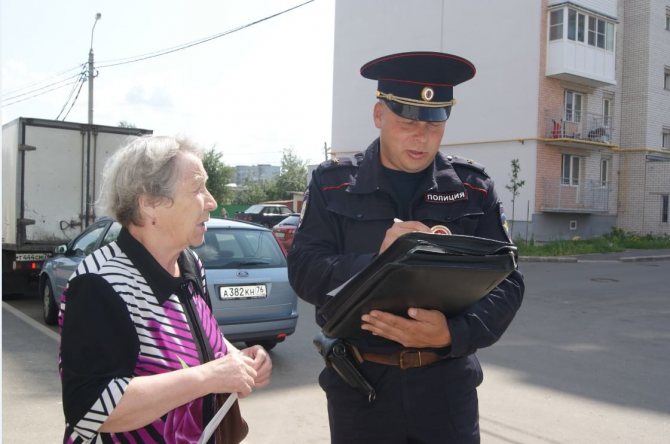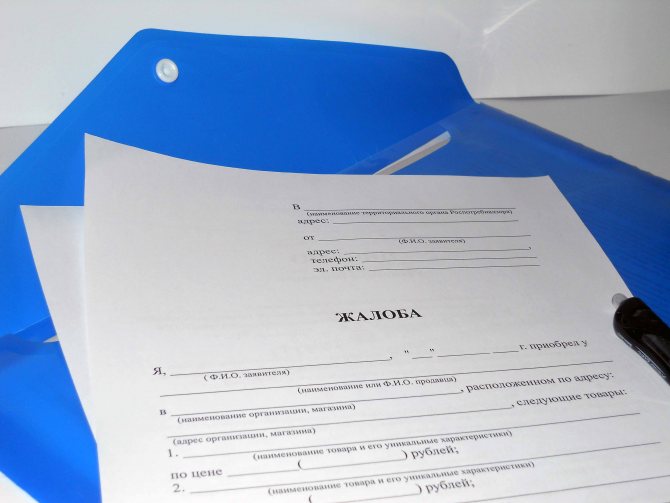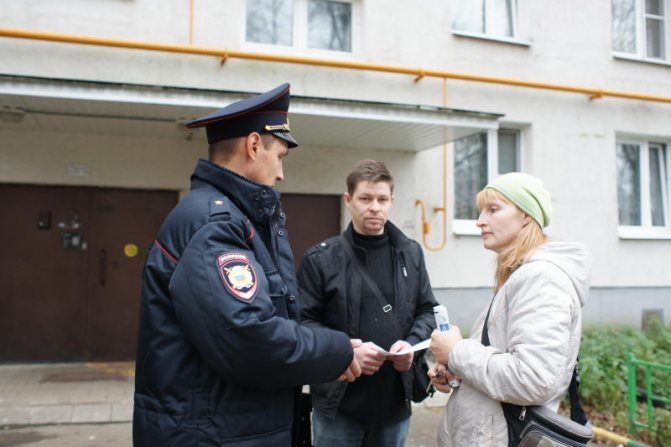A complaint against a local police officer is filed in cases of dishonest performance by the latter of his duties.
One of the functions of the police is crime prevention. This responsibility rests with the district police officer. It is this official who is responsible for carrying out preventive measures. But in practice, quite often situations arise when a district police officer does not fully carry out his functions or even withdraws from their performance. In this case, each person can send a complaint to the authorized government agencies.
Functions of a local detective
The main responsibilities of such an official are reflected in Order of the Ministry of Internal Affairs of the Russian Federation dated December 31, 2012 No. 1166 “Issues of organizing the activities of local police commissioners.”
These include, in particular:
- Clear knowledge of legal requirements relating to professional activities.
- Use of forms and methods for crime prevention.
- Carrying out urgent investigative actions.
- Implementation of activities within the administrative process.
- Knowledge of the assigned service area, as well as the law enforcement forces deployed for these purposes.
- Possession of information about places of official storage of firearms, ammunition, medications, psychotropic and narcotic substances, items seized from citizens that are prohibited for free use.
- Informing representatives of organizations and public associations that are involved in the implementation of measures to protect public order.
- Reception of applications and appeals, as well as other information about offenses. Immediately report such facts to the duty service using any means of communication.
- Checking information about an upcoming, ongoing or committed offense.
- Notification of applicants about the proceedings within the framework of the submitted appeal.
- Submission of reports on the work done to higher management bodies.
- Immediately arrive at the scene of the incident to carry out all necessary actions.
- Identification of the reasons for committing offenses.
- Preventive work with persons prone to committing crimes.
- Selection of candidates as freelancers.
- Interaction with citizens, organizations and public associations on the prevention of crimes and offenses, as well as the protection of public order.
- Taking urgent measures to save people, ensure the safety of material assets, and ensure the uninterrupted operation of rescue services in emergency situations.
- Execution of court decisions, orders of investigative authorities for the detention and forced bringing of suspects and accused.
- Providing assistance to other employees and departments of the Department of Internal Affairs.
- Taking part in counter-terrorism activities.
- Control of persons released from places of isolation.
- Participation together with medical authorities in measures to prevent mass diseases.
- Confiscation from citizens of objects and substances prohibited for free storage and use.
- Joint patrolling with the police patrol service of the service area.
- Identification of persons involving minors in committing illegal actions.
- Identifying places of illegal drug use and immoral behavior.
- Search for minors who left an educational institution without permission or left their family.
The competence of the local police officer is quite broad. Accordingly, there are many reasons for filing complaints.
Where to complain?
First of all, a complaint against a district police officer for inaction should be sent to higher management in the same department to which this person belongs. This may be the deputy head of the internal affairs department or the head of the city department of internal affairs. Practicing lawyers even recommend telling the local police officer about this; as a rule, the police officer’s line of behavior immediately changes. If there are no positive changes, then you should immediately write and send or take the complaint to senior management.
Although, to be honest, it is very rarely possible to solve the problem at the local level. The next step in this case is to file a complaint about the inaction of the local police commissioner to the security department of the Central Internal Affairs Directorate. It is this case that is really interested in facts of violation of official duties, and cases of corruption are considered. The Federal Security Service and the Prosecutor's Office may be interested in the fact of inaction.
Grounds for complaint
Anyone can contact authorized official bodies for various reasons. In relation to the district police officer, the citizen will complain if he does not act.

The most common reasons are the following:
- Unreasonable refusal to accept an application.
- Ignoring information about an offense or crime.
- Violation of the schedule for receiving citizens on personal matters.
- Failure to comply with deadlines for consideration of received applications.
- Lack of crime prevention in the serviced area.
- Untimely or insufficient information to citizens about the progress of the proceedings on applications.
- Rough treatment of people.
- Application of prohibited measures of influence to suspects or detainees.
- Extortion of money or additional rights for oneself, as part of the performance of duties in one’s position.
This list is not exhaustive.
Any person, regardless of whether he has Russian citizenship, can file a complaint against a district police officer if he believes that the latter is improperly fulfilling his duties. It should be noted that legal entities also have the right to send complaints of this nature.
What to do if the local police officer does not respond to complaints?
If your local police officer does not take any action to calm down the raging neighbors, stop the illegal sale of alcohol in the local area, etc., then every citizen of the Russian Federation has the right to call the hotline - 8-800-222-74-47 . This is the helpline of the Russian Ministry of Internal Affairs.
It is advisable to call here if a crime or any offense is being committed before your eyes, and the local police officer does not respond to your calls or is not there at all.
Rules for drawing up a document
To begin the procedure for conducting proceedings regarding dishonesty on the part of a police officer, the initiator can fill out an application. This document must be drawn up in accordance with legal requirements. A clear model has not been approved by regulatory legal acts. The only condition in this case is the written form of the document. The text contains all information and data relevant to the essence of the problem. The initiator must include the required details in the content of the appeal.
Complaint structure
The application consists of several parts. It always starts with the so-called information header. This part contains the following information:
- The full name of the authority to which the complaint is sent - court, prosecutor's office, police department, as well as the address of its actual location. Here you can display information about the head of the authority. Although this is not a requirement.
- Information about the initiator - full last name, first name, patronymic, or company name, place of residence or location, telephone number, email details for contact.
- Document's name. In this case it will be a complaint.
Next comes the descriptive part. It reflects all the details of the current situation. The date, time, place and circumstances of the incident are described in detail. The nature of the violation is indicated, as well as information about the local police station. If possible, it is necessary to make a reference to a rule of law that establishes the violated capabilities of the applicant.

In the final part, the initiator must clearly formulate his demands, that is, indicate the goal that he strives to achieve: dismissal of the district police officer from his post, recovery of compensation for damage caused, imposition of disciplinary, administrative or criminal liability.
If the applicant attaches available information and data to his application, then the text must reflect a detailed list of such documentation. The complaint must bear the signature of the initiator and the date of preparation.
Registration requirements
A complaint of any nature must not only be structured. The application of a legal entity or individual must meet certain requirements. In order to file a complaint, you can use a standard printed company form or a sheet of regular office paper. The law does not limit the number of pages of an appeal. You can compose the text itself by hand or using technical printing tools.
All words and phrases must be readable. It is not allowed to enter information that degrades the honor and dignity of people, as well as the use of profanity.
Complaint handling bodies
The current legislation defines a list of authorities where the initiator can apply.
Any person has the right to complain about the dishonest performance of official duties by a district police officer to his immediate supervisor, to the body supervising compliance with the law, as well as to the court.
Direct supervisor
The activities of the district police officer are organized by his chief. Such an official, within the framework of his competence, exercises not only control over the performance of duties. It is also responsible for the actions performed by its subordinate.
The manager has the opportunity to give an order to the district police officer to immediately eliminate the consequences of the offense committed. He is empowered to initiate the procedure for applying disciplinary measures against an employee, up to and including dismissal from his position and dismissal from the police department.
In most cases, this option allows the issue to be resolved peacefully, with the least damage to each of the parties to the conflict.
Prosecutor's office
The supervisory authority is the body that is authorized to consider any issues related to facts of violation of legal requirements. The consideration of a complaint against the actions of a local police officer is no exception here.

In this case, the prosecutor's office has a larger list of possibilities compared to the management of the internal affairs department. The supervisory authority may raise the issue not only of disciplinary punishment. The prosecutor's office has the authority to initiate administrative or criminal proceedings. The supervisory authority has the right to submit a proposal to a higher management body to eliminate violations of the law and bring the immediate supervisor of the district police officer to disciplinary liability.
District Court
The initiator can file a complaint with the court. This authority is authorized to consider issues on their merits. In court, as a rule, claims of a civil nature are filed. In relation to the district police officer, they can be expressed in the imposition of obligations to compensate for material or moral damage caused.
However, regardless of the plaintiff’s demands, the court may make a separate decision and send the materials to the investigative authorities if there are signs of an offense or crime in the actions of the local police officer.
Who should I complain to about the inaction of the local police?
Many citizens are faced with non-compliance with laws by government officials or total failure to fulfill their duties. In such cases, it is necessary to write a complaint to the authorized bodies in order to protect the rights of the citizen, which are regulated by the Constitution of the Russian Federation.
Before submitting a written application, you need to understand who has the authority to influence the district police officer. If the local police officer is inactive, there are several options:
- Submitting an application to higher authorities.
- Writing a statement to the prosecutor's office.
- Filing a claim and proceeding in court.
- Visit of a person authorized for human affairs.
Let's take a closer look at how to proceed in each of the listed options.
Submitting an application to higher authorities
In every police department, behind every authorized person from the authorities there is a leadership responsible for the actions of their subordinates. In order to understand who is the head of your local police officer, you need to personally go to the department and find out all the information you need. This can be done at the entrance to the department - from the duty officer sitting at the post.
After higher management has been found, you should ask him to understand the current situation, provide support and protect the rights of the citizen. You can also make a call instead of a personal visit if the district police officer does not respond to the application left.
Writing a complaint to the prosecutor's office
Not in all situations, simply contacting the local police chief will give the desired result. It happens that even after submitting such a request, nothing changes - the employee continues to fail to fulfill his duties.
The next authority to whom to complain about the local police officer is the prosecutor's office. It acts as an authorized body that checks the work and performance of the immediate duties of police officers based on statements left to citizens.
You must submit an appeal to the prosecutor's office located in your area; the period for consideration of such applications is 3 days in case of an open criminal case and up to 10 days if missing documents are requested.
The application must contain all the main details of the appeal and be divided into three parts: header, body and conclusion. For other complaints, the consideration period remains the same - 30 days.
Filing a claim, trial
If neither an appeal to higher management nor a complaint to the authorized bodies brings the expected result, it is worth starting to defend your rights through legal proceedings, filing a lawsuit against the district police officer.
The right to such appeal is regulated by Article No. 22 of the Code of Criminal Procedure of the Russian Federation. Also, Articles 52 and 53 of the Constitution state that a citizen whose rights are infringed by law enforcement officers may demand payment of compensation (in the event of harm to health or other damage).
A citizen must appeal to the court, which is located in the area and to which the district police officer who is not fulfilling his duties is assigned. The trial process takes five days, during which the judge reviews the papers submitted by the plaintiff, prepares everything necessary for the future hearing and ultimately makes his verdict on the case.
Features of appealing the inaction of a district police officer in court
To appeal against unlawful actions or inaction of a police officer, who is a local police officer, it is necessary to prepare an administrative claim in court. It is written personally by a citizen whose rights and interests have been violated, or it is prepared by a public association, the Commissioner for Human Rights in the Russian Federation or in a subject, or a prosecutor in the interests of other persons. The application form must comply with the requirements of the Code of Administrative Proceedings of the Russian Federation dated March 8, 2015 No. 21-FZ.
The deadline for filing a claim is 3 months from the day it became known about the violation of rights, interests and freedoms. If this period is missed, this is not a basis for refusing to accept the claim. Restoring the deadline, as well as determining whether a pass is valid, falls within the competence of the court.
Based on the results of consideration of the administrative claim, the court makes a decision to satisfy the complaint in part or in full or refuses to satisfy it.
Visit of a person authorized for human affairs
The fourth option, where to complain about a local police officer, is used only in extreme cases - when none of the first three gave the expected result.
The authorized person responsible for protecting the rights of citizens must review the resubmitted application. Relevant organizations are present during this process.
Appeal to such a person is possible within one year, starting from the date of the event when human rights were violated.

Commissioner for Human Rights
A citizen of the Russian Federation has the right to appeal to the Commissioner for Human Rights if:
- became a victim of criminal or civil proceedings;
- his rights were violated by a decision of one of the authorities;
- has already appealed decisions that infringe on his rights in legislative or administrative proceedings.
A citizen has the right to contact the commissioner within a year. After filing a complaint, the Commissioner for Human Rights or his employee, within 10 days, reviews and verifies the legal fulfillment by government agencies of the criteria of the complaint. If violations have been identified, he has the right to appeal to the Constitutional Court or even the State Duma of the Russian Federation to appeal the decision of the prosecutor's office and legal authorities.
Deadline for filing a complaint
There are no clear time periods for contacting the authorized authorities regarding the incompetence of a police officer in the current regulations. However, the outcome of the review will depend on the nature of the offense. In this case, it is necessary to be guided by the statute of limitations for bringing to disciplinary, administrative or criminal liability, as well as filing a claim in court. In any case, the period begins to be calculated from the moment when the person became aware or could have learned of the violation of his rights. For example, if the initiator intends to recover compensation for damage caused, then the statute of limitations will be three years. In the event of an administrative violation or crime, the time period depends on the type of offense.
The period for consideration of a complaint against a district police officer will be thirty days. The exception here is the prosecutor's office. The supervisory authority can consider an appeal within fifteen days if it does not require additional measures.
Nuances of determining the addressee of a complaint against a local police officer
Where to address a complaint against a local police officer depends on the content of the complaint. In any case, the addressee can be the head of the police department where the district police officer serves. If the question concerns the initiation of a criminal case, it is advisable to send a complaint to the prosecutor's office. When the question concerns damage as a result of illegal actions of a local police officer - a complaint against the chief of police, to the prosecutor's office, and then - filing a statement of claim.
When filing an administrative claim in court against the actions of an official or when filing a claim for compensation for damage caused by an authority, a copy of the complaint against the district police officer will become an appendix to the claim and one of the evidence in the civil case.
Results of the complaint consideration
The investigation into the fact of the appeal ends with a certain result, which can be:
- Confirmation of the fact that the local police officer violated his duties, as a result of which the applicant’s demands will be partially or fully satisfied.
- Forwarding the complaint to the authority that is authorized to resolve these issues.
- Lack of facts confirming violation of the law on the part of the district police officer. Here it is necessary to explain to the applicant his rights to the possibility of appealing the decision.
The initiator must be notified in writing of the results of the review. The response must indicate the type of responsibility to which the district police officer was brought, as well as the penalties that were applied to him if the violation of the law was confirmed.










